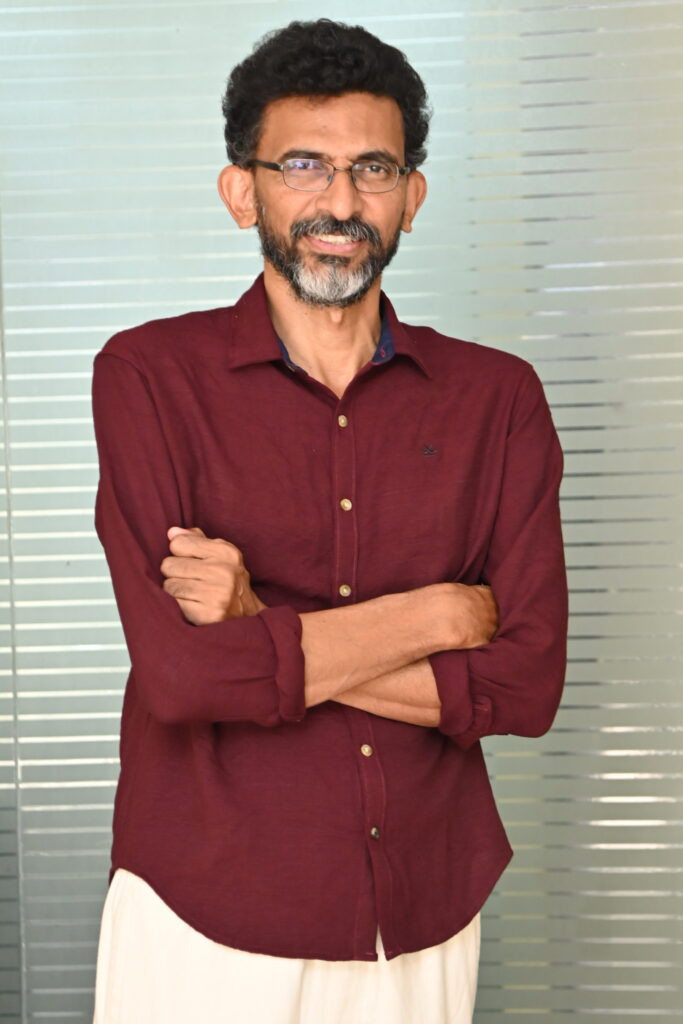Director Sekhar Kammula Interview on ‘Kubera’: “A Story Like This Had to Be Told—It Will Be a Unique Experience for the Audience”

Superstar Dhanush, King Nagarjuna, and National Crush Rashmika Mandanna come together for the highly anticipated pan-India film Kubera, directed by visionary filmmaker Sekhar Kammula. With a stellar cast and a powerful narrative, Kubera is poised to be a game-changer in Indian cinema.
The promotional content—Poyira Mama, Trance of Kubera, and PP Dum Dum songs—has already received tremendous response, trending across music charts. Produced with high production values by Sunil Narang and Puskur Ram Mohan Rao under SVCLLP in collaboration with Amigos Creations, the film is set for a grand worldwide release on June 20 in five languages: Telugu, Tamil, Hindi, Kannada, and Malayalam.
What inspired you to make Kubera?
“There wasn’t a specific motivation, but I found the idea extremely intriguing,” said Sekhar Kammula during a press meet. “It’s a clash of two contrasting worlds—one of extreme wealth and the other of extreme poverty. A billionaire versus a beggar. It’s a concept that evolved into an emotional thriller. Telling such a story is challenging, but deeply satisfying.”
What’s unique about the story?
“One character desires nothing, while the other wants everything the world can offer. Their conflict is fascinating. We see many films these days, but rarely stories like this that need to be told. It’s a narrative that brings awareness while being thrilling and emotionally charged.”
Was it shot in multiple languages?
“Yes, we shot the film simultaneously in Telugu and Tamil. There are no major story changes, but there’s a one-minute difference in length. Every shot was filmed separately for each version, especially for lip sync. Technically, it’s like making two different films, which naturally took more time.”
Why Nagarjuna for this role?
“When the character has multiple shades, Nagarjuna is the perfect choice. He brings a ‘wow factor’ to the screen. We’ve shown him in a new dimension, quite different from his previous performances in films like Manam and Oopiri. He truly fits this character and has delivered something extraordinary.”
What about Rashmika?
“She will surprise everyone. When given a solid opportunity, she has the ability to perform at the next level. And she proves that in this film.”
Why did you choose Dhanush for the role of Kubera?
“No one else could have played that role. After watching the film, audiences will agree. His performance is beyond outstanding—he lives in the character throughout filming and often finishes scenes in a single take. He’s simply irreplaceable here.”
Will Kubera carry your signature style?
“People say my films have a certain mark, but I never consciously aim for that. I just do what the story demands. My earlier films like Leader and Happy Days were honest to their themes, without trying to force love stories or songs. Similarly, Kubera is honest to its core idea. It might surprise audiences with its depth and presentation.”
Is this story ideologically sensitive?
“Not at all. Kubera isn’t meant to preach or push an ideology. But yes, it will definitely create awareness about the stark contrast between two different worlds in society.”
Working with DSP?
“Working with Devi Sri Prasad has been fantastic. He’s the king of commercial music and has given Kubera an exceptional background score. There are many high-impact moments enhanced by his music.”
Is this your biggest-budget film so far?
“Yes, absolutely. The star-studded cast and scale wouldn’t have been possible without the tremendous support of the producers. They never said no to any creative demand, and that helped us execute our vision.”
How do Dhanush and Nagarjuna’s characters interact?
“You’ll have to watch the movie to find out,” Kammula says with a smile. “Their journey together is beautifully woven into the narrative.”
How was working with Jim Sarbh?
“He surprised me with his dedication. No matter how long the dialogue was, he memorized and delivered it without missing a line. I believe he’ll get more roles in Indian cinema after this.”
What was the biggest challenge during production?
“Shooting in Mumbai was extremely difficult. Getting permissions there is tough due to multiple restrictions. Even filmmakers from Mumbai often shoot elsewhere. So shooting there was quite a challenge.”
Why was Mumbai chosen as the backdrop?
“The story demanded it. Mumbai fits the narrative perfectly—it wasn’t a random choice.”
Reflecting on 25 years in the industry?
“I started from a small house with my first film. Now I’m making a film on this scale. Looking back, it’s emotional. The audience has always believed in me, appreciated my work, and supported my journey. That means everything to me.”
Will Kubera have a sequel?
“No, this story ends here. One is enough,” he laughed.
What about a sequel to Leader?
“I do think about it. I even have clarity on the story. But the country and society have changed a lot since Leader came out. The thinking has evolved. Capturing that accurately will be key.”
Is your next film also pan-India?
“Not necessarily. Kubera became a pan-India film naturally because the story has that universality. Making a genuine pan-India film is tough—it’s not just about scale. It involves lyrics, dubbing, emotion, and connecting with audiences across the country.”
What about working with Nani?
“There’s nothing solid yet. We’re still developing the idea. It will take some time.”
Kubera, with its intense narrative, unique conflict, and a dream cast, is not just a film—it’s an experience waiting to unfold on June 20.


